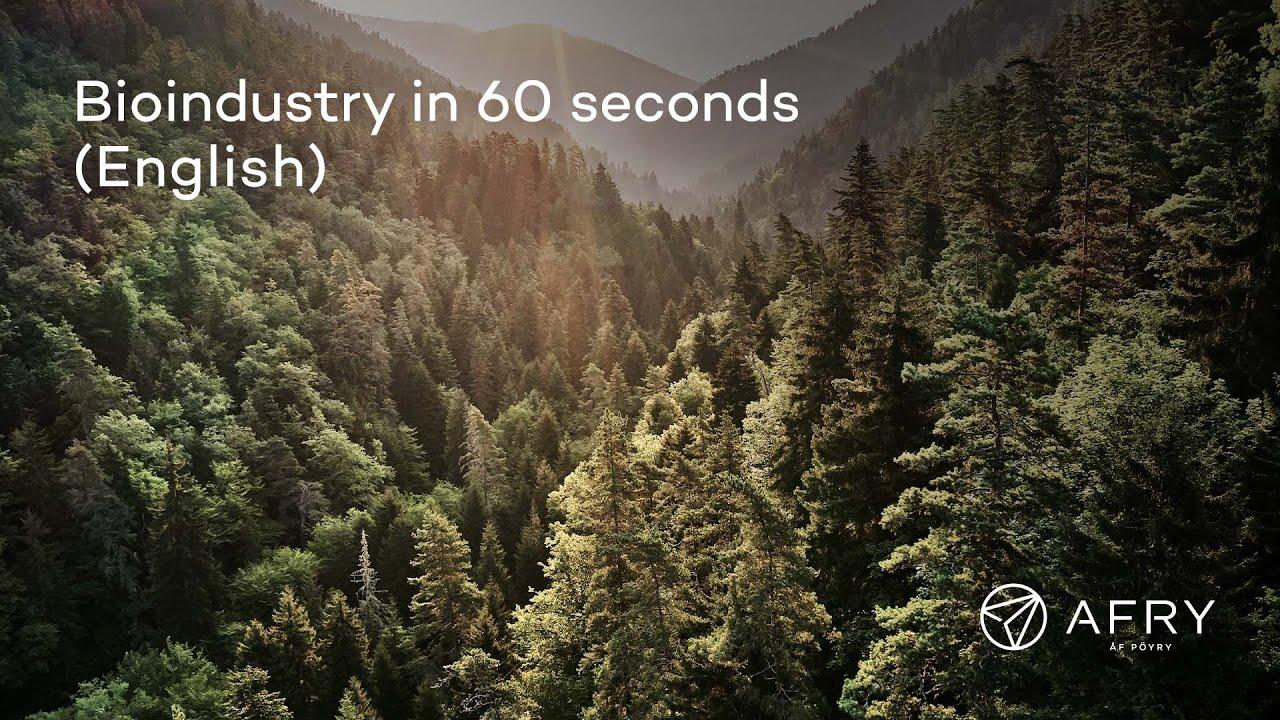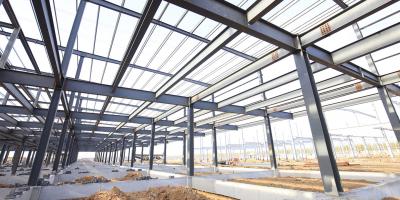

Bioindustry
Bio-based industries offer hundreds of renewable alternatives
The bio-based industry transition sets the frame for fossil-based materials replacement with bio-based materials. Climate change, environmental concerns, an overall need for resource efficiency and scarcity of natural resources are driving society and businesses to look for renewable, non-fossil raw materials and circular solutions.
Biochemicals, biofuels, bioplastics, novel biomaterials and textiles, wood products, pulp and all grades of paper and board are some of the products by the bio-based industry clients we globally serve.
Bioindustry services at AFRY cover the full lifecycle of the biorefining value chain and offer clients access to leading advisory, technical design and investment implementation capabilities.

Bio transition leads the way towards more sustainable industries
Bioindustry offers hundreds of possibilities to create value in the bio-based markets
Bio-based industries will have a key role in the transition to using renewable raw materials and mitigating climate change. AFRY has held a firm leading position in advisory, design and implementation of large-scale biomass refining projects for more than six decades, on a global scale. Bio-based products, like biochemicals, biomaterials and fuels, are part of the decarbonisation solution in the transition away from fossil materials, cutting our dependency on fossils and reducing and eliminating CO2 emissions. Our client base ranges from novel start-up enterprises to world-leading brands. Through our consulting and engineering offering clients gain access to a wide-scale of advisory services and world-leading technical design and investment implementation capabilities.

Bio-based industry offers endless opportunities but also requires increased investments from the industry sector. The ongoing technological development will further enable many ground-breaking bio-based products originating from residues and side streams. These products will have all the properties we now look for in fossil-based materials, without the carbon footprint. Digitalisation is a key enabler also for this industry. The whole value chain, from raw material to end-user markets, will be digitalised and all levels of digitalisation need to be integrated in one common platform including all data sources from engineering technical data to operational data and information technology data.
With traditional industry boundaries blurring, new ways and partnerships are being created to harvest synergies and challenge the status quo. With 17,000 engineers and advisors within infrastructure, industry and energy, AFRY offers a broad and deep portfolio across industries and geographies that we can transfer knowledge from.
Our track record of biorefining consulting and engineering assignments spans over 6 decades and we have a unique competence and position in this industry. We help clients to capture the bio-based industry potential from their initial business idea to engineering and project implementation services through to operations support.
Bio-based industry and circular solutions are the game changer
Capturing the full potential of bio-based industries will be an enabler in mitigating climate change.
By increasing the value of bio-based materials, reducing waste and embracing circular solutions, we will reach higher resource efficiency.
AFRY will accelerate the pace, work together across industries and collaborate on the next big leaps in innovation, design and implementation of bio-based and circular solutions.
With collective action, we can transition to renewable materials and circular solutions that enable a sustainable future for generations to come.


Our sustainability commitment
AFRY’s mission is to accelerate the transition towards a sustainable society. In bio-based industries, we are helping to modernise and adapt industry to increased sustainability and economic productivity through improved energy efficiency, effective and circular resource use, diversification, technological upgrading and innovation, environmentally friendly technologies and industrial processes, as well as improved health and safety. We are contributing to more efficient water use and to circular water flows in industry, as well as to environmentally sound management of chemicals and waste and reductions of their release to air, water and soil.
Water scarcity is a global issue that is related to climate change and in order to make the bio-based industry sector even more sustainable, we are committed to providing solutions to reduce pulp industry water use in existing facilities by more than 20% to meet our clients' sustainability targets. With this sustainability commitment AFRY, together with the whole process industry sector, takes one step closer to the targets laid out in the UN sustainability goals.
Frequently Asked Questions
- What does Bioindustry mean?
- What is the difference between Bioindustry, Biotechnology and the Bioeconomy?
- How is AFRY supporting the transition to a sustainable bioindustry?
- Why is the Bioindustry important in tackling climate change?
Biochemicals, biofuels, bioplastics, new biomaterials and textiles, wood products, pulp, all grades of paper and board, and tissue & hygiene products – these are some of the products by bio-based industry related clients we globally serve. Bioindustry combines forest industry with new biomass sources as well as traditional pulp & paper industry with advanced bio-solutions.
AFRY offerings for bio-based industry include advisory consulting, engineering and project implementation services for identifying, evaluating and implementing renewable biomass-based investment options and projects. AFRY has a unique understanding of the full biomass value chain – from raw materials to end-product markets. The projects AFRY designs, and implements are safe, energy and resource-efficient meeting stringent environmental standards.
Bioindustry - is an umbrella for industries that produce bio-based end-products through various technologies that can draw full value from biomass and all its side streams.
Biotechnology utilises biological systems, living organisms, or parts of this to develop or create various products.
Bioeconomy refers to an economy that relies on renewable natural resources to produce food, energy, products and services.
Read our online article: Bioeconomy - the new normal to hear from Cepi Chairman, Ignazio Capuano and AFRY’s own CEO, Jonas Gustavsson, as they discussed their perspectives on the emerging bioeconomy.
We have many clients that already work in the bioindustry sector, producing various products from renewable biomass. However, new products, new innovations, new technologies, and new attractive possibilities are constantly arising in the bio-based industry sector.
We advise clients that are entering the bio-based industry sector about the possibilities they have, and design, and implement safe and resource-efficient processing units for them. For the clients that already operate in this industry, we can assist in rethinking or repositioning a way forward, give advise on entering new product segments, or for example evaluate and implement a rebuild or upgrade of their current production units to improve overall resource efficiency and sustainability.
Read our news article: AFRY accelerates the transition in Bioindustry
Leveraging the full potential of bio-based industry will play a fundamental role in mitigating climate change. We can replace many of the fossil-based products we use in our daily lives with bio-based alternatives The bio-based products cause lower CO2 emissions and help us to reduce our carbon footprint, which is critical to meet the climate change targets. Bio-based products can also have improved functionalities and better recyclability.
Bio-based industry is, however, only one part of the equation in tackling climate change. We cannot replace all fossils with a bio. Radical improvement of overall resource efficiency by minimising waste and maximising the value of both fossil-intensive and bio-based materials will be key to a sustainable future. To succeed, we need to accelerate the pace and work together across industries to collaborate on the next big leaps in innovation, design and implementation of circular solutions.

We provide innovative and sustainable solutions for all bio-based industry sectors
- Biofuels incl. biogas
- Biochemicals incl. tall oil
- Bioplastics
- Biomaterials incl. biocomposites, lignin, nanocellulose, technical carbons
- Pulp
- Board
- Packaging
- Paper
- Hygiene & tissue
- Textiles
- Wood products


- Biomass and forest resources
- Recycling and recovered paper fibre























